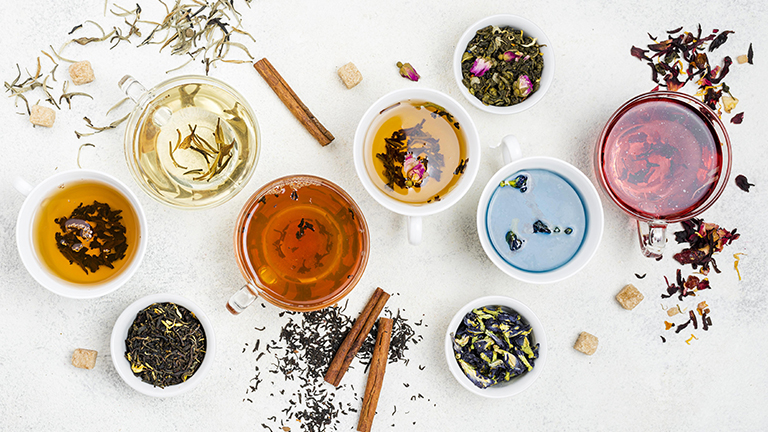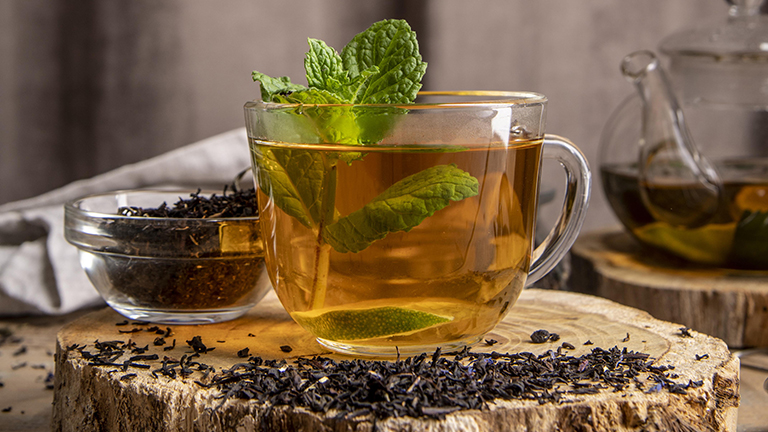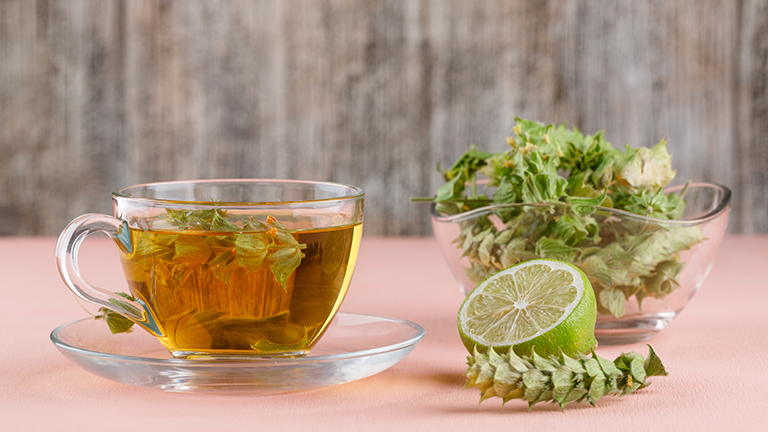Digestive problems such as bloating, gas, constipation, indigestion, and acid reflux are increasingly common in today’s world. Poor diet choices, processed foods, stress, and irregular eating patterns can all disrupt the natural balance of the digestive system. While modern medicine provides quick fixes, natural remedies like herbal teas are becoming popular for long-term digestive wellness. Herbal teas for digestion and gut health have been used for centuries in traditional medicine systems such as Ayurveda, Chinese medicine, and folk remedies across Europe and the Middle East.
Herbal teas are not only soothing to drink, but they also contain bio active compounds that support the digestive tract, regulate bowel movements, reduce bloating, and even promote a healthy gut microbiome. Unlike caffeinated beverages that may sometimes irritate the stomach, herbal teas offer a calming, anti-inflammatory, and gut-friendly alternative.
This comprehensive guide will explore the benefits of herbal teas for digestion and gut health, the best varieties for specific digestive issues, how they interact with the gut microbiome, and the science behind their healing properties. By the end of this article, you will know which herbal teas to include in your daily routine to improve digestion naturally.
Benefits of Herbal Teas for Digestion
The digestive system is complex, involving multiple organs and trillions of gut bacteria that work together to break down food and absorb nutrients. Herbal teas play a supportive role by providing natural compounds such as polyphenols, flavonoids, and essential oils that enhance gut health.
One of the most immediate benefits of herbal teas for digestion is their ability to relieve bloating and gas. Certain teas like peppermint and fennel relax the digestive tract muscles, allowing trapped gas to move through the intestines more smoothly. Herbal teas also stimulate the production of digestive enzymes, which help break down food more efficiently and reduce indigestion.
Another key benefit is their role in supporting the gut microbiome. The gut is home to beneficial bacteria that regulate everything from metabolism to immune function. Teas like green tea and chamomile contain prebiotic compounds that feed good bacteria, promoting balance in the microbiome. By reducing inflammation, herbal teas also help soothe conditions such as irritable bowel syndrome (IBS) and acid reflux.
Unlike over-the-counter medications that may mask symptoms, herbal teas work gently to address the root causes of digestive discomfort, offering long-term relief and overall gut support.
[INSERT_ELEMENTOR id=”5108″]
Herbal Teas and the Gut Microbiome
The gut microbiome is often referred to as the “second brain” because of its powerful influence on digestion, mood, and immunity. Maintaining a healthy microbiome is essential for digestion, and herbal teas are an excellent way to nurture it.
Herbal teas rich in polyphenols, such as green tea and dandelion tea, act as prebiotics by feeding beneficial bacteria. These compounds encourage the growth of gut-friendly species like Lactobacillus and Bifidobacterium while inhibiting harmful bacteria. For people dealing with leaky gut syndrome or chronic digestive discomfort, herbal teas provide anti-inflammatory support that helps restore gut lining integrity.
Teas such as licorice root and chamomile contain mucilaginous properties that coat and protect the intestinal walls. By soothing inflammation and creating a healthier gut environment, herbal teas contribute to improved nutrient absorption and overall well-being.
Teas That Reduce Bloating and Gas
Bloating and gas are among the most common digestive complaints worldwide. They can be caused by swallowing air, poor diet choices, food intolerances, or imbalances in gut bacteria. Herbal teas are natural carminatives, meaning they help reduce gas formation and improve digestion.
Peppermint tea is especially effective because it contains menthol, which relaxes the digestive tract muscles and allows gas to pass more easily. Fennel tea is another powerful option, as it reduces intestinal spasms and encourages smoother digestion. Ginger tea stimulates enzyme activity and prevents fermentation in the gut, which can lead to bloating.
These teas work quickly, making them excellent natural remedies to sip after meals or when bloating occurs. Unlike synthetic medications, they provide relief without harsh side effects.
Peppermint Tea for Digestion and Bloating Relief
Peppermint tea is one of the most widely used herbal teas for digestion. Its active compound, menthol, relaxes the muscles in the gastrointestinal tract, making it effective for bloating, cramps, and gas. Studies have shown that peppermint oil and peppermint tea may also help with irritable bowel syndrome by reducing abdominal pain and discomfort.
Drinking peppermint tea after meals can speed up digestion and prevent feelings of fullness or heaviness. It also has a cooling, refreshing effect that makes it enjoyable both hot and iced. However, people with severe acid reflux should exercise caution, as peppermint can sometimes relax the lower esophageal sphincter and worsen symptoms.
Ginger Tea for Indigestion and Nausea
Ginger tea has been used for thousands of years as a natural remedy for nausea, indigestion, and motion sickness. Its active compounds, gingerols and shogaols, stimulate digestive enzymes and increase gastric motility, which means food moves more efficiently through the digestive tract.
For people experiencing slow digestion, bloating, or constipation, ginger tea offers a warming and stimulating effect. It also reduces inflammation in the stomach lining and helps relieve nausea, making it ideal for those with morning sickness or chemotherapy-induced nausea.
Ginger tea can be consumed daily, and adding lemon or honey enhances both its taste and digestive benefits.
Chamomile Tea for Gut Inflammation and Relaxation
Chamomile tea is best known for its calming properties, but it also has powerful digestive benefits. It reduces inflammation in the gut and relaxes the smooth muscles of the intestines, making it an excellent choice for relieving cramps, indigestion, and mild stomach upset.
Chamomile tea also promotes better sleep, which indirectly supports digestion. Poor sleep has been linked to gut imbalances and digestive problems, so drinking chamomile tea before bedtime can improve both gut health and rest.
Its anti-inflammatory compounds, such as apigenin, make chamomile tea beneficial for people with irritable bowel syndrome, gastritis, or leaky gut syndrome.
Fennel Tea for Gas and Constipation
Fennel tea is a traditional remedy for digestive discomfort, particularly gas and constipation. It contains compounds such as anethole that relax intestinal muscles and stimulate bile flow. This helps break down fats more efficiently and prevents the buildup of gas in the intestines.
Fennel tea is particularly effective for children and infants with colic, although it should be given in mild doses. For adults, fennel tea after meals helps prevent indigestion and supports regular bowel movements. Its slightly sweet and aromatic taste makes it a pleasant after-dinner drink.
Dandelion Tea for Detox and Liver Support
Dandelion tea is often associated with detoxification because of its ability to support liver function, but it also plays a role in digestion. By stimulating bile production, dandelion tea helps break down fats and improves nutrient absorption.
Its mild diuretic properties also prevent water retention, which can contribute to feelings of bloating. Rich in antioxidants and prebiotic fibers, dandelion tea supports the gut microbiome and enhances detoxification pathways in the body.
Regular consumption of dandelion tea improves both digestive and liver health, making it a powerful herbal ally for gut balance.
Licorice Root Tea for Acid Reflux and Gut Lining
Licorice root tea is a soothing herbal remedy for acid reflux, gastritis, and ulcers. Its compounds help increase mucus production in the stomach, which protects the gut lining from acid damage. This makes it particularly beneficial for people with chronic acid reflux or stomach irritation.
Deglycyrrhizinated licorice (DGL) is often recommended, as it removes compounds that may raise blood pressure. Drinking licorice tea before meals creates a protective barrier in the stomach, reducing heartburn and indigestion.
Green Tea for Gut-Friendly Antioxidants
Green tea is not only popular for weight loss and energy but also for its gut-friendly antioxidants. Its polyphenols act as prebiotics, feeding beneficial bacteria in the microbiome and improving digestive balance.
Green tea reduces inflammation in the gut and supports metabolic health. Its catechins, particularly EGCG, have been shown to reduce the growth of harmful bacteria while encouraging beneficial species. Drinking green tea daily promotes long-term gut health and provides a gentle energy boost without overstimulating digestion.
Teas for Acid Reflux and Heartburn
People struggling with acid reflux and heartburn often turn to herbal teas for relief. Chamomile tea, licorice tea, and slippery elm tea are especially effective because they soothe the esophagus and reduce inflammation. Unlike peppermint tea, which can sometimes worsen reflux, these teas provide protective and calming effects for the stomach lining.
Drinking warm, non-caffeinated herbal teas between meals can reduce reflux symptoms and improve digestion over time.
Teas for IBS and Leaky Gut
Irritable bowel syndrome (IBS) and leaky gut syndrome are chronic digestive conditions that benefit from herbal tea therapy. Chamomile, peppermint, and fennel teas can reduce IBS symptoms such as cramps, diarrhea, and bloating. For leaky gut, teas like licorice root and slippery elm coat the intestinal lining and promote healing.
Consistency is key when using herbal teas for IBS and leaky gut. Drinking two to three cups daily can provide noticeable relief and restore gut balance naturally.
Teas for Constipation and Bowel Regularity
Constipation is a common digestive complaint, and certain herbal teas provide natural relief. Senna tea is a powerful herbal laxative that stimulates bowel movements, though it should be used occasionally and not as a daily habit. Gentler teas like fennel, ginger, and dandelion promote regularity without harsh effects.
Drinking warm herbal teas also hydrates the intestines, softening stool and supporting bowel movements. Combining these teas with fiber-rich foods enhances their effectiveness.
Best Time to Drink Herbal Tea for Digestion
The timing of herbal tea consumption can influence its effectiveness. Drinking ginger or peppermint tea after meals helps speed digestion and prevent bloating. Chamomile tea is best in the evening, as it supports both relaxation and digestive healing during sleep.
For constipation, morning teas like dandelion or fennel stimulate bowel movements, while licorice root tea before meals provides gut lining protection. By tailoring tea consumption to specific times of the day, you can maximize digestive benefits.
Recommended Daily Intake for Gut Support
Most herbal teas can be safely consumed two to three times a day. However, strong teas such as senna should only be used occasionally for constipation. Listening to your body is important, as some people may require more frequent use for digestive relief while others may benefit from one daily cup.
Herbal teas are most effective when combined with a balanced diet, adequate hydration, and stress management.
Combining Herbal Teas for Maximum Benefits
Blending herbal teas can provide synergistic effects for digestion. For example, ginger and fennel together work powerfully against bloating, while chamomile and peppermint create a soothing digestive mix. Many herbal tea blends available in stores are specifically formulated for digestive support.
Experimenting with combinations allows you to personalise your tea routine based on your digestive needs.
Precautions and Side Effects
Although herbal teas are natural, they are not without precautions. Pregnant women should avoid certain teas like fennel or licorice without consulting a doctor. People on medications such as blood thinners, diuretics, or blood pressure drugs should also seek medical advice before starting herbal teas.
Overconsumption of strong laxative teas like senna can lead to dependency and dehydration. Therefore, moderation is key when using herbal teas for digestion and gut health.
Conclusion: Final Thoughts on Herbal Teas for Digestion and Gut Health
Herbal teas are a time-tested, natural, and effective way to support digestion and gut health. Whether you struggle with bloating, gas, constipation, acid reflux, or chronic conditions like IBS, there is an herbal tea that can provide relief.
From the soothing effects of chamomile and peppermint to the detoxifying properties of dandelion and the gut-healing benefits of licorice root, each tea offers unique digestive support. By incorporating herbal teas into your daily routine, you can nurture your gut microbiome, improve nutrient absorption, and achieve long-term digestive balance.
A warm cup of herbal tea is more than just a comforting beverage—it is a natural medicine for your gut.



